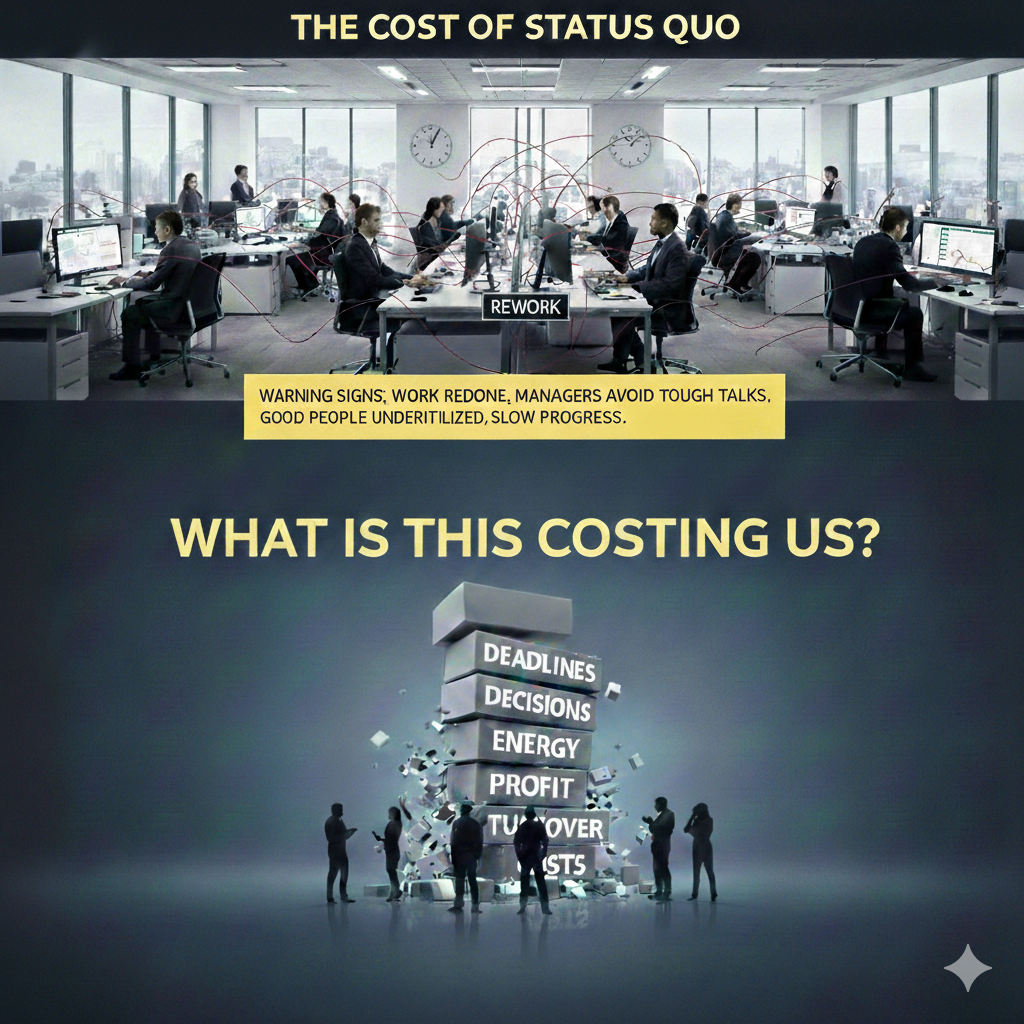Your Role in Strong Workplace Performance
Cathie Leimbach • August 20, 2020
This is a subtitle for your new post

Good News! If you're tired of your employees not meeting your expectations, there is something you can do about it! You have the power to solve the four most likely reasons for disappointing workplace performance!
- Barrier #1 - Most employees (yes, the majority of employees), don't know WHAT they are expected to accomplish at work. Maybe you asked Bob to write a report on how the department is doing during Covid. But, did you tell him that the CFO asked for a report that explains why production has decreased and cost per product has increased? Did you tell Bob that the report requires a one-page executive summary, a table of last-year-to-date and this year-to-date production, cost of production, and staff attendance numbers, and up to three pages of explanation?
- Barrier #2 - The majority of employees don't know HOW to achieve the desired results. Bob may never have prepared a report for senior management so doesn't know there is a standard company format. He may not know where to find attendance or cost of production data.
- Barrier #3 - Bob may not know WHY this job needs done, WHY completing this task will make a difference? Will the report just sit in the CFO's inbox or will it be used to equip staff to enhance performance? People are more committed to doing work that has value.
- Barrier #4 - There may be OBSTACLES that prevent Bob from doing the job. He might not have access to the report-writing software. Those who have the required financial and attendance data may view this information to be their source of workplace power and not be willing to share it with Bob. You may have to ensure they provide the data.
If you aren't satisfied with the performance of your team members, the ball is in your court! When will you ensure they are clear about:
- WHAT they are expected to achieve each day?
- HOW to do the job effectively?
- WHY their work is important?
- How you will remove OBSTACLES
- that limit their success?
New tools promise big results. New software, dashboards, and systems all look great on paper. But months later, many leaders are still asking, “Why hasn’t much changed?” Because tools don’t change behavior — leadership does. A system can organize work, but it can’t create ownership. It can’t set expectations. It can’t follow through. Without strong leadership habits, even the best tools just make problems more visible. What really drives results? Clear expectations Consistent follow-through Helpful feedback Leaders who model the right behavior When those are missing, people work around the tool instead of with it. Adoption drops. Frustration rises. And the old problems stay. So the better question isn’t, “What tool do we need next?” It’s, “Do our leadership habits support the results we expect?” 👉 Join our 60-minute Leadership Conversation to explore the habits that actually drive performance.

When things feel “manageable,” leaders often continue with status quo. People are busy. Work gets done. But small issues quietly add up. Rework becomes normal. Deadlines stretch. Decisions take longer. None of it feels like a crisis, but together it eats away at time, energy, and profit. Inconsistent leadership makes it worse. When expectations change from day to day or from one manager to another, people stop giving their best. Some coast. Some get frustrated. Some start looking elsewhere. Turnover rises, along with hiring and training costs. The warning signs are usually right in front of us: Work keeps getting redone. Managers avoid tough conversations around poor performance. Good people are doing less than they could. Progress feels slower than it should. The real question isn’t, “Can we live with this?” It’s, “What is this costing us if nothing changes?” 👉 Join our 60-minute Leadership Conversation to explore how today’s patterns may be impacting your results — and what small shifts could make a big difference.
